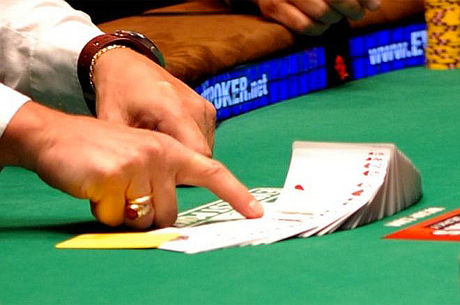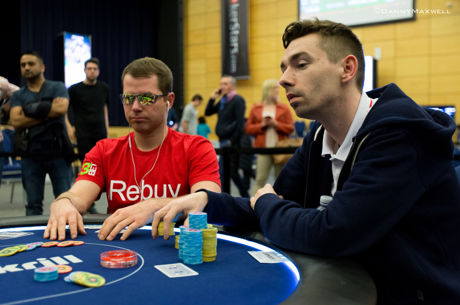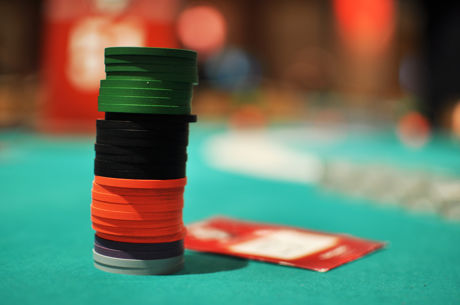Play Poker Like an Octopus, Not Like a Mantis Shrimp
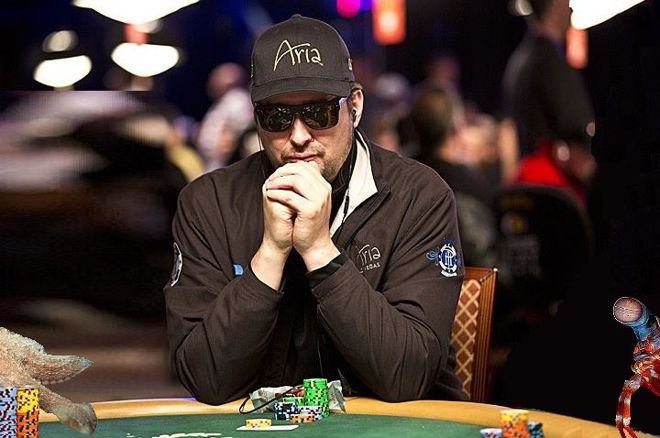
In his 2003 book Play Poker Like the Pros, Phil Hellmuth famously categorized poker players as one of five animal types �� the lion, the jackal, the elephant, the mouse, and, best of all, the eagle. It's also common to hear poker players described as a fish or a donkey. After a bad beat, a player might be said to be on "monkey tilt."
But have you ever heard of a poker player described as a mantis shrimp? How about an octopus?
A couple of months ago, I mentioned having recently learned about evolutionary biologist Robert Trivers. His impressive life's work has centered around uncovering the role that deception plays in the survival of every species �� including bacteria, plants, insects, and, of course, humans.
I became so interested in his work that I bought a book Trivers published in 2011, The Folly of Fools: The Logic of Deceit and Self-Deception in Human Life. I'm not finished with it yet, but it's been a fascinating read, chock-full of mind-blowing stuff that I had never heard of before. Despite the title's emphasis on humans, much of the book actually focuses on research done in other species.
Because of the indispensable role that deception plays in poker, I'm seeing parallels and insights scattered throughout the book. But for now, let me just tell you about mantis shrimps and octopuses.
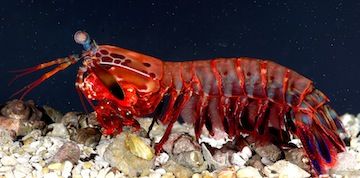
"Mantis shrimps are hard-shelled and their claws dangerous for seven weeks out of eight," Trivers explains. "On the eighth week, they are molting, and their body and claws are soft; they are unable to attack others and are vulnerable to attack by them. When encountered at this time, they greatly increase their rate of claw threats, sometimes combined with insincere lunges at the opponent."
How are these "claw threats" viewed? Trivers continues.
"About half the time, this scares off their opponent. The other half, the soft-shelled shrimp runs for its life. The week before a mantis shrimp becomes soft-shelled, it increases its rate of claw threats but also increases the rate at which these threats are followed by actual attack, as if signaling that threats will be backed up by aggressive action just before the time when they will not."
You've played poker with a mantis shrimp before, though you probably didn't realize it at the time. This is the player who, early in a session, makes an overly obvious display of one particular playing style, with the plan to change to its opposite shortly thereafter.
Probably the closest analogy to the actual mantis shrimp would be the player who proudly shows a strong hand or two, hoping to convince you that he's always got the goods when he bets, only to follow it up with a lot of bluffing.
But probably more common is the opposite �� the player who plays aggressively right after sitting down, showing off one or two bluffs. He figures that's enough to establish a table image that will get him profitable calls later on, when he reverts to his actual baseline playing style, which is that of a nut-peddler.
These ruses should not be hard to detect. They're simplistic and transparent. This kind of player assumes his opponents are so dense that they will mentally pin a certain label on him on the basis of a couple of early hands, and never revisit it. It's a strategy that will only work against low-level, unobservant opponents.
Well, nobody ever accused the mantis shrimp of being the smartest creature in the ocean.
But you know what is the smartest creature in the ocean? The octopus.
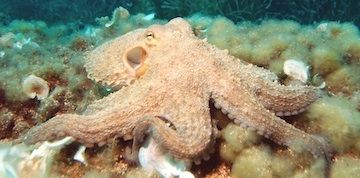
"At intermediate speeds (when foraging), [octopuses] adopt a most unusual strategy of randomly displaying variant phenotypes [i.e., different shapes and color patterns] at about the rate of three per minute, for hours at a time, as if they are shuffling through a deck of cards featuring different camouflaged versions of themselves," writes Trivers.
"This helps prevent the predator from forming a specific search image for any particular version. Just as the predator recognizes potential prey, the prey has morphed into a novel camouflaged form. "
The octopus would be a fantastic, unbeatable poker player �� and not just because it would have eight sleeves in which to hide extra aces. The player who changes to a new pattern of play just as you're zeroing in on the old one will always be one step ahead of you.
If you've seen him continuation bet the flop exactly the same way with the nuts, with a draw, and with nothing at all, then when he does it yet again, you are left unable to link his bet with any useful inference about what he has. This reduces you to pure guessing, which makes you highly likely to make a costly mistake.
If you've seen him play like a maniac, a rock, and everything in between, you can't use a label to narrow down the range of hands he might be playing at any given moment. Again, you are reduced to pure guesswork, and guesses are inevitably going to be wrong a high percentage of the time.
I'm not sure how Phil Hellmuth would react to being told that in poker it's better to be an octopus than an eagle. Maybe he'd fume, "This guy can't even spell octopus!"
But in the end he'd probably at least agree with this advice �� don't be a mantis shrimp.
Robert Woolley lives in Asheville, NC. He spent several years in Las Vegas and chronicled his life in poker on the ��Poker Grump�� blog.
Photos: A female Odontodactylus Scyllarus mantis shrimp, public domain; Octopus vulgaris, Albert Kok, CC BY-SA 3.0.
Be sure to complete your PokerNews experience by checking out an overview of our mobile and tablet apps here. Stay on top of the poker world from your phone with our mobile iOS and Android app, or fire up our iPad app on your tablet. You can also update your own chip counts from poker tournaments around ?the world with MyStack on both Android and iOS.

